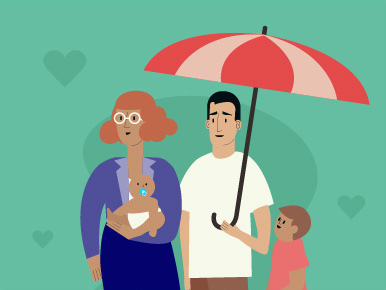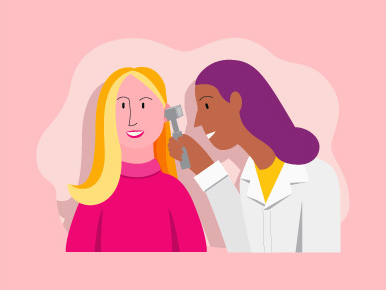In New Zealand, we're certainly lucky to rely on low-cost access to public healthcare, especially when it comes to emergencies. But when it comes to non-urgent care, access to treatment often involves long waits — and the pandemic has exacerbated this issue.
As in many other countries, the arrival of Covid-19 in the community, coupled with lockdowns, has resulted in healthcare reorganisation and increased elective surgery waiting times across New Zealand. And according to DHB officials, a lack of critical staff and facilities means catching up on operations delayed is challenging.
In the current scenario, having health insurance can make all the difference. So whether you already have it or not, here's a reminder of the benefits that this cover brings to the table — for both your personal and financial wellbeing.
Improving your quality of life
In many countries around the world, the pandemic has seen healthcare systems put 'elective surgeries' temporarily on hold.
Typically, elective procedures are for non-life threatening medical issues (like knee or hip replacements, hernia surgery, removing kidney stones, or other slowly developing conditions) and can be scheduled in advance. But it can also be for more serious issues like cancer.
And it's important to note that 'elective' doesn't mean optional: the medical problem can often cause severe pain or limit movements, so delaying the procedure can reduce the patient's quality of life and even lead to worsening symptoms.
This is where having health cover can help: it's designed to give you faster access to diagnosis and treatment, without having to pay for private healthcare in full, so you can fast-track your recovery.
Helping with early detection
Some elective procedures, like colonoscopies or gastroscopies, are key diagnostic tools that can help with early cancer detection.
When it comes to aggressive forms of cancer, even just a few months can make a huge difference to the patient's outcome. Once again, with comprehensive health insurance that cover costs like specialist consultations, diagnostic imaging and testing, hospitalisation and surgeries, you can get the healthcare you need while also safeguarding your finances.
Paying for unfunded treatments
Lastly, many health insurance policies offer some level of cover for medical treatments that are not yet publicly funded. Commonly known as 'non-Pharmac medications', in some cases these treatments can change or even safe your life.
For example, we're talking about certain life-extending cancer treatments that are already in use overseas. Some have already received the 'green light' from Medsafe, meaning they're safe to use in New Zealand; however, Pharmac is yet to approve them for public funding. Without health cover, Kiwis needing these medications have few options: turn to crowdfunding or pay thousands of dollars out of their pockets (if they can afford it).
Here's another key area where health insurance can step in. Keep in mind that, while most health insurers offer the opportunity to cover the cost of non-Pharmac treatments, not every policy allows for this option. And even amongst those that do offer it, the limits available can vary widely.
Like to learn more?
Looking at health insurance for the first time and would like to learn more about what different insurers offer, give our quote compare tool a spin to get health insurance quotes in minutes, or call the LifeDirect team on 0800 800 400.
Do you already have health cover in place, and would like a recap of what's covered and what's not? Once again, our friendly advisers are here to answer your questions, big and small.
Disclaimer: Please note that the content provided in this article is intended as an overview and as general information only. While care is taken to ensure accuracy and reliability, the information provided is subject to continuous change and may not reflect current developments or address your situation. Before making any decisions based on the information provided in this article, please use your discretion and seek independent guidance.












